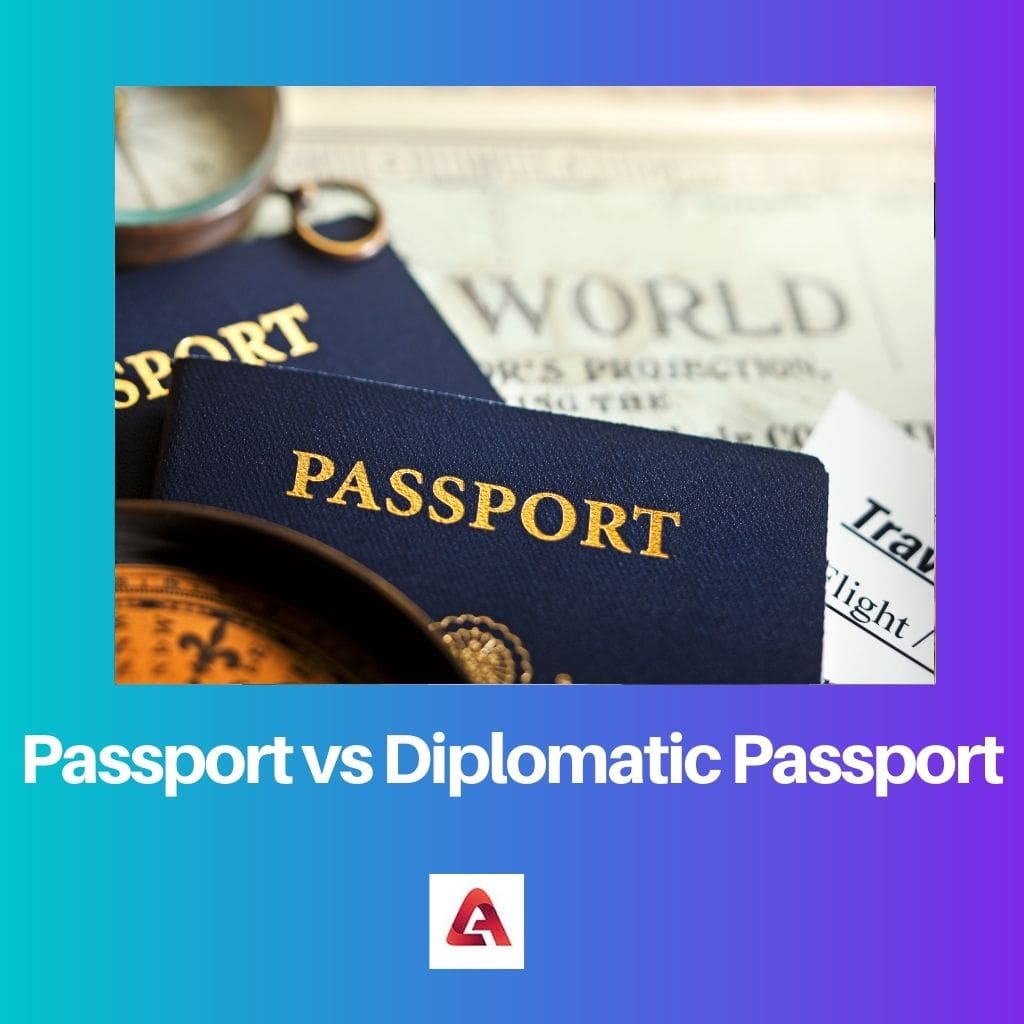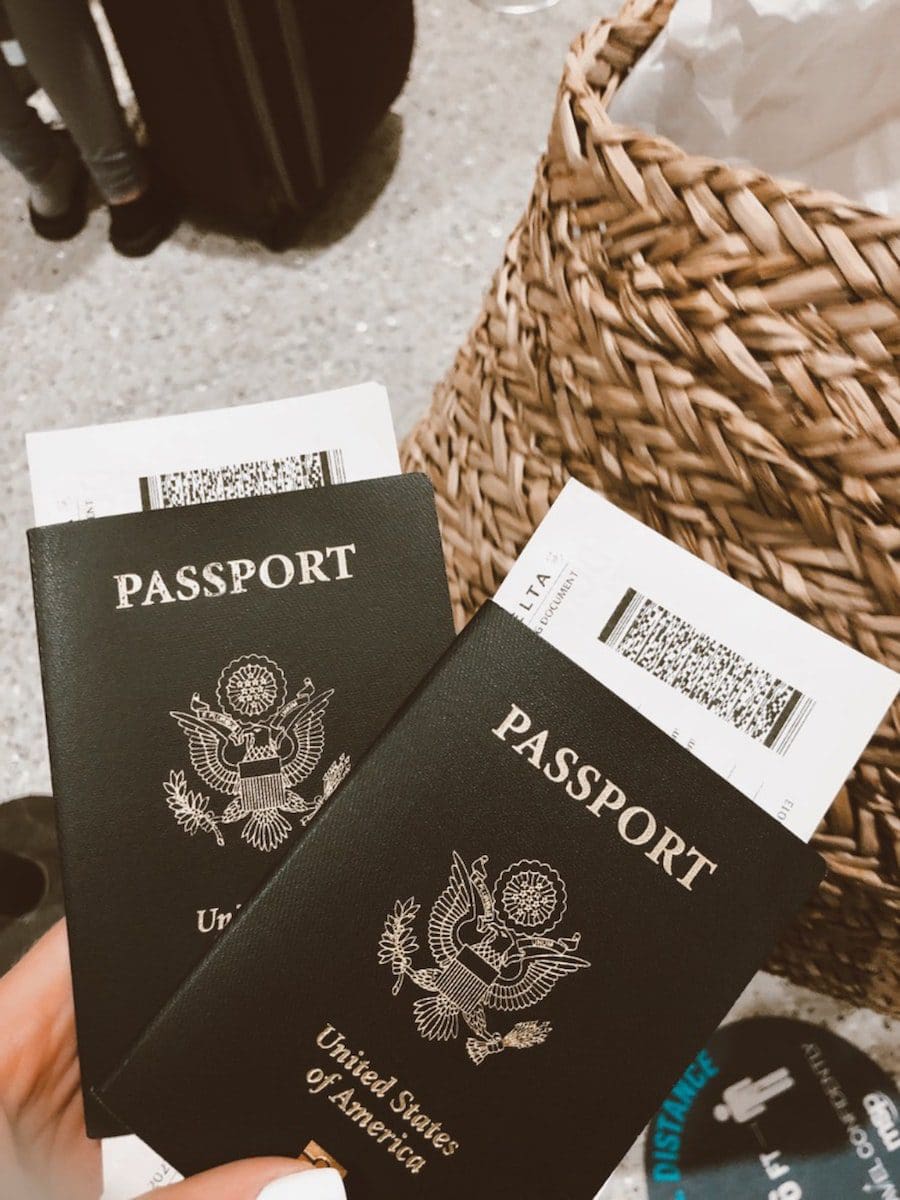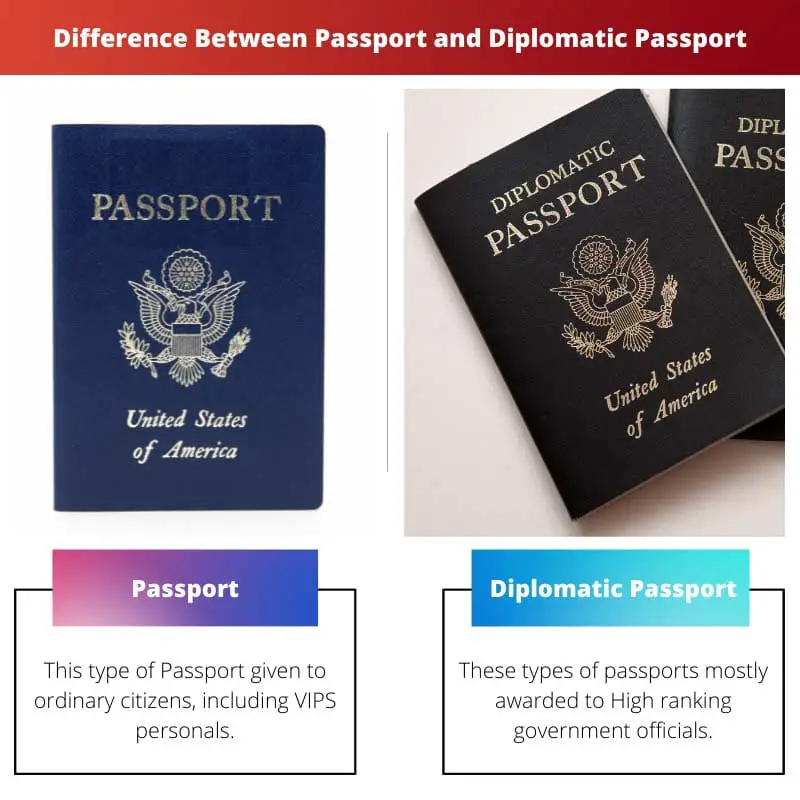A regular passport is issued to citizens for international travel, while a diplomatic passport is reserved for government officials and diplomats, granting them certain privileges and immunities. Diplomatic passports are used for official government business and represent a higher level of international recognition and protection.
Key Takeaways
- A passport is an official government document that verifies a person’s identity and nationality, allowing them to travel internationally. In contrast, a diplomatic passport is a special passport issued to diplomats and government officials for work-related travel.
- Diplomatic passports grant their holders certain privileges and immunities under the Vienna Convention on Diplomatic Relations, such as expedited immigration processes and, in some cases, visa-free travel.
- Both passports serve as proof of identity and nationality, but diplomatic passports offer additional benefits to facilitate the work of diplomats and government officials in foreign countries.
Passport vs Diplomatic Passport
The difference between a passport and a diplomatic passport is an ordinary passport is issued to any citizen. A diplomatic passport is only issued to the privileged.

Ordinary Passports are a compilation of documents issued by the government to citizens. In this particular category, there is no special authorization for passports allowed.
The primary purpose of a passport is validation given to citizens, which consists of the bearer’s name and nationality. This identification document is mainly required during international travel.
Ministers of foreign affairs receive this diplomatic Passport—these passports are issued for people representing their homeland abroad for the benefit of countries’ progress. Government authorities appoint these diplomats; hence, they have a lot of privileges.
Comparison Table
| Feature | Passport | Diplomatic Passport |
|---|---|---|
| Issued to | Ordinary citizens | Government officials, diplomats, and their families |
| Purpose | Traveling for personal or professional reasons | Representing the government abroad |
| Color | Typically maroon or dark blue | Typically navy blue or black |
| Validity | Usually 5-10 years | May be less than 5 years |
| Number of pages | Varies depending on type | Usually fewer pages than ordinary passport |
| Visa-free travel | Access to fewer countries without visas | Access to more countries without visas |
| Fees | Typically higher than diplomatic passport | Often waived or reduced for officials |
| Renewal process | Standard passport renewal procedures | May involve additional security clearances |
| Lost or stolen passport | Replacement process similar to ordinary passport | May involve embassy or consulate assistance |
| Immunities and privileges | No special privileges | Diplomatic immunity and privileges in some countries |
| Tax implications | May be subject to income tax on earnings abroad | Exempt from income tax in some countries |
| Security | Standard security features | May have additional security features |
What is Passport?
A passport is a government-issued travel document that certifies the identity and nationality of its holder, allowing them to travel internationally. It serves as an essential tool for border control authorities to manage and monitor the movement of individuals across borders.
Key Features of a Passport
- Identification Information:
- A passport includes personal details such as the holder’s full name, date of birth, photograph, and signature.
- It may also contain additional information like height, eye color, and other distinguishing features.
- Nationality and Citizenship:
- The passport indicates the holder’s nationality and citizenship, serving as an official proof of belonging to a specific country.
- Travel Endorsements:
- Visas and entry/exit stamps from foreign countries may be present in a passport, documenting the individual’s travel history and permissions granted by other nations.
- Security Features:
- Passports incorporate various security features, including holograms, watermarks, and embedded microchips, to prevent forgery and enhance document integrity.
- Expiry Date:
- Passports have an expiration date, after which they need to be renewed. This ensures that the document remains up-to-date and complies with the latest security standards.
- Machine-Readable Zone (MRZ):
- The bottom of the passport contains a machine-readable zone with coded information, facilitating quick and accurate data entry by automated systems at border crossings.
- Purpose of Travel:
- While a regular passport is for general international travel, some countries issue special passports for specific purposes, such as diplomatic passports for government officials.
Application and Issuance
- Application Process:
- Citizens apply for passports through their government’s passport issuance authorities, submitting necessary documentation and fulfilling specific requirements.
- Issuance Authority:
- Passports are issued by government agencies responsible for immigration and citizenship. These agencies ensure that applicants meet the criteria for obtaining a passport.
- Renewal and Replacement:
- Passport holders must renew their passports before expiration. In case of loss, theft, or damage, individuals can apply for a replacement.

What is Diplomatic Passport?
A diplomatic passport is a specialized type of travel document issued to individuals representing their respective governments in international affairs. It grants certain privileges, immunities, and protections to the passport holder, emphasizing their official status and facilitating diplomatic functions.
Purpose and Eligibility
- Official Representation: Diplomatic passports are exclusively granted to individuals who are officially representing their government, such as government officials, diplomats, and members of international organizations.
- International Relations: The primary purpose is to facilitate diplomatic functions and official travel, allowing holders to engage in negotiations, attend conferences, and conduct official business abroad on behalf of their home country.
Features and Benefits
- Immunities and Privileges: Diplomatic passport holders are afforded certain immunities and privileges under international law. These may include immunity from arrest, protection of personal and official assets, and exemption from certain taxes and duties.
- Streamlined Entry and Exit: Countries extend courtesy and expedited processing to individuals with diplomatic passports, allowing smoother entry and exit procedures at border crossings and airports.
Design and Recognition
- Distinctive Appearance: Diplomatic passports have a distinct design, making them easily recognizable. This may include specific colors, symbols, or markings that set them apart from regular passports.
- International Recognition: The diplomatic status conferred by these passports is widely recognized, and other nations extend courtesies and privileges to diplomatic passport holders as a matter of international protocol.
Limitations and Responsibilities
- Restricted Use: Diplomatic passports are meant solely for official government business, and misuse or unauthorized use can lead to diplomatic repercussions.
- Renewal and Termination: The issuance, renewal, and termination of diplomatic passports are subject to the policies and regulations of the issuing country. They are valid for the duration of the diplomatic assignment.

Main Differences Between Passport and Diplomatic Passport
- Purpose:
- Passport: Issued for general international travel and identification for citizens.
- Diplomatic Passport: Exclusive to government officials and diplomats, facilitating official representation and diplomatic functions.
- Eligibility:
- Passport: Available to all citizens for personal travel purposes.
- Diplomatic Passport: Granted to individuals representing their government in official capacities, such as diplomats and government officials.
- Privileges and Immunities:
- Passport: Provides standard travel rights and protections.
- Diplomatic Passport: Grants special privileges, immunities from certain legal processes, and tax exemptions under international law.
- Recognition:
- Passport: Universally recognized for personal travel purposes.
- Diplomatic Passport: Widely acknowledged as a symbol of official representation, commanding respect and privileges in diplomatic circles.
- Design and Appearance:
- Passport: Follows standard design, varying in color and features by country.
- Diplomatic Passport: Often has a distinctive design, using specific colors, symbols, or markings to differentiate it from regular passports.
- Use Limitations:
- Passport: Intended for personal travel and identification purposes.
- Diplomatic Passport: Strictly for official government business, with misuse potentially leading to diplomatic consequences.
- Validity and Renewal:
- Passport: Subject to regular renewal for personal travel needs.
- Diplomatic Passport: Valid for the duration of the diplomatic assignment, with renewal processes based on government policies.
- International Protocol:
- Passport: Governed by standard international travel norms.
- Diplomatic Passport: Operates under specific international protocols, with host countries extending courtesies and privileges to diplomatic passport holders.






